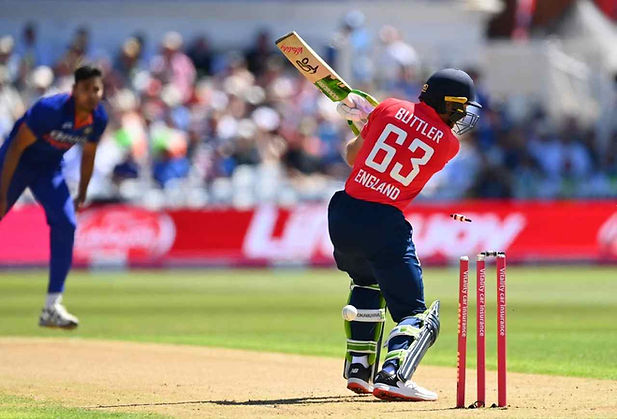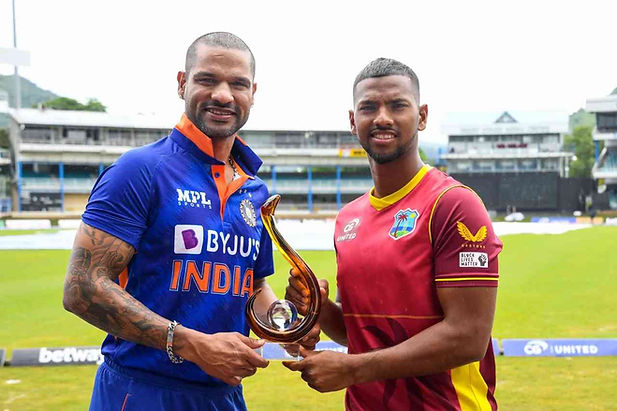T20 franchise cricket will rule the world. Bilateral series have to be cut down inorder to save international cricket. 50 overs ODI cricket can only survive in the WorldCups, Ravi Shastri says.

With the rise of T20 cricket, especially in the franchise format, the One Day International (ODI) games seem to be an afterthought; what’s more, it’s due to get worse with every passing week.
The huge news came from South Africa pulling out from their One Day leg of the Australia tour, which was scheduled to be held between January 12 to 17 in 2023, due to the requirement of their star international players in their recently constructed T20 league; and that will put their automatic qualification in danger for the 50-over World Cup in India later that year.
ODIs have become irrelevant of late
The ODIs have become less relevant if one goes through the cricket schedule. The first half of the summer in England ended with the conclusion of Blast, i.e., England’s domestic T20 tournament. What’s to follow are the Hundred, Caribbean Premier League (CPL), T20 Asia Cup, ICC T20 World Cup 2022 and the Big Bash League (BBL) 2022.
As a corollary, the next year’s 50-over World Cup which is actually 15 months away from now, feels 30 years away.
The one-day series that took place between Pakistan and West Indies in Multan in June was an example of how players appeared to have been pushed to play those games in a city where the day time temperature in that month touched 40°C. Everything seemed to be done just because of the sake of the points towards the automatic World Cup qualification.
In the same way, England and Netherlands took on each other in a historic first bilateral series in the Dutch country just for the points. The games were played between the end of the second Test and start of the third Test between England and New Zealand, which meant that most of the main players weren’t part of the series; to surprise all, Netherlands too missed their few vital players.
Read More: ODI Retirement of Ben Stokes: Is it time for ICC, Boards to rethink schedule and formats?
Play less bilaterals and get together for the World Cups: Ravi Shastri
Former India captain and a great commentator of the game, Ravi Shastri, in an episode of ‘Vaughany and Tuffers’ podcast revealed why there should be a change in shaping the one day format.
“I would be a little careful of the number of bilateral splits, especially in T20 cricket; there’s a lot of franchise cricket which can be encouraged, whichever country it’s in – India, West Indies or Pakistan.”
Shastri added how less bilaterals would make the world cup events more vital. “You play less bilaterals and then you get together for the World Cups; so, the emphasis on ICC World Cup events becomes paramount and then people look forward to them.”
Shastri has also advised the method of surviving all the formats of the game. “I think two tiers are needed, otherwise Test cricket will die in 10 years time; you need six teams at the top and six teams in the second tier and then you qualify.”
He further said, “and those top six play against each other more often because of the corridor you open up by having less bilateral T20 cricket and just franchise cricket; that’s the way all formats of the game can survive.”
Former England captain, Michael Vaughan opined that there will be a period where ODI cricket will be played just once in four years in the World Cup event.
“Among all that, it’s very difficult to continue with 50-over cricket as well; it might be that the only 50-over cricket that will be played will be every four years at the World Cup,” Vaughan told Ravichandran Ashwin on the latter’s YouTube channel.
“I know there will be die-hards who will ask how will you be good at 50-over cricket if you don’t play it? But 50-over cricket now is just an extension of T20 cricket,” he continued. “Players try to bat like T20 cricket for 50 overs; that’s why you see 350-400 scores regularly.”
ODI cricket needs to find its relevance: Ravichandran Ashwin
Ace India off-spinner, Ravichandran Ashwin, recently went on record to say that he had switched his TV off after a point while watching an ODI game. He expressed, “It’s a question of relevance and I think ODI cricket needs to find its relevance; it needs to find its spot.”
Ashwin feels one day cricket is an extended form of T20 and advocates the use of one ball for an entire game. “The greatest beauty of one day cricket is – sorry, was – the ebbs and flows of the game; it used to be a format where the bowlers had a say.”
Ashwin gets full support from Australia batter Usman Khawaja, who himself has lost his personal interest from the 50-over games. “I think personally one day cricket is dying a slow death; there’s still the world cup, which I think is really fun and it’s enjoyable to watch.”
Read More: Stokes retires from ODIs, calls playing 3 formats unsustainable; England’s worries pile up before WC

Issues with tri-nation series too
Recently, former India player, Wasim Jaffer used his Twitter handle to bring a new insight on ODIs. Because India played their last ODI in England on July 17, and South Africa were due to begin their one day series against England on July 19, Jaffer felt that the board could have rather organised a tri-series to increase the excitement.
But there are a couple of issues with the tri-nation series; one is about the financial concern and secondly, it’s about finding a three-week window in the calendar year that is agreeable to three teams. Back in the day, the amount of tri-series was high given the absence of T20 format, which is not the case anymore.
T20 World Cups in two years is cooling down the excitement of ODI WC
The quality of games has also played a major role in bringing down the excitement of fans; most followers of the game were glued to the England-India ODI series, but there was hardly any interest in the Pakistan-West Indies or the West Indies-Bangladesh series.
Moreover, one T20 World Cup every two years with all those franchise competitions across the world have erased the real exaltation for the 50-over World Cup.
What’s the way forward for the 50-over bilateral games
People got to look at the reality; otherwise, it won’t be long enough to receive a huge punch on the face. The economic structure of the game is based on franchise cricket which is ruling the roost.
“Franchise cricket is going to rule the roost; so, cut bilateral cricket and go in that direction,” Ravi Shastri discussed in a Sky Sports show. “You will never be able to stop the players from going and playing in different franchise cricket; you just can’t deprive a guy from earning his bread and butter.”
With the amount of cricket getting high, players will start to cut down one format and unfortunately, one day cricket is going to be the scapegoat. Ben Stokes has taken a step on his part and taken retirement from one day cricket.
“50-over cricket can still survive if you focus just on the world cup and from the ICC’s point of view, paramount importance should be given to the world cups; the bucks have to increase for people to realize and be a part of it,” the former India head coach explained.
For other small boards, they will always look at franchise cricket for the revenue, otherwise they may break down financially in the future. One of the ways can be to ask the boards to pay for the window of their franchise cricket and that money can be redistributed.
“It’s about planning how you see the whole game fitting together and that’s where the administrators need to be more enlightened to try and work it out,” former England captain Mike Atherton pointed out how the boards need to think in designing franchise cricket in a better shape. “For example, the Hundred, plunged in the middle of the season for a month, without being given much thought of how it effects the game altogether.”
Few countries may want to scrap out Test cricket rather than ODIs
Ravi Shastri also wants the game to be framed on the lines of the model deployed in football; just like football has the English Premier League (EPL), La Liga or Copa America, Shastri thinks that in future, there will be one big World Cup and the rest of it will be the different leagues happening around the world.
But for a few countries, they might want to leave out Test cricket and play more ODIs and T20Is; now if all of a sudden, the one day games are scrapped out, it will be a huge elephant in the room for them in the future. So, the game is at a tipping point right now, and it’s high time that the boards come out and discuss on how they want to shape out the 50-over games in the coming days.
Something is going to give; interesting to see who will be the whipping boy.
Read More: Virat Kohli rested for WI series; Does he have a future in T20Is with the advent of Hooda & Surya?

